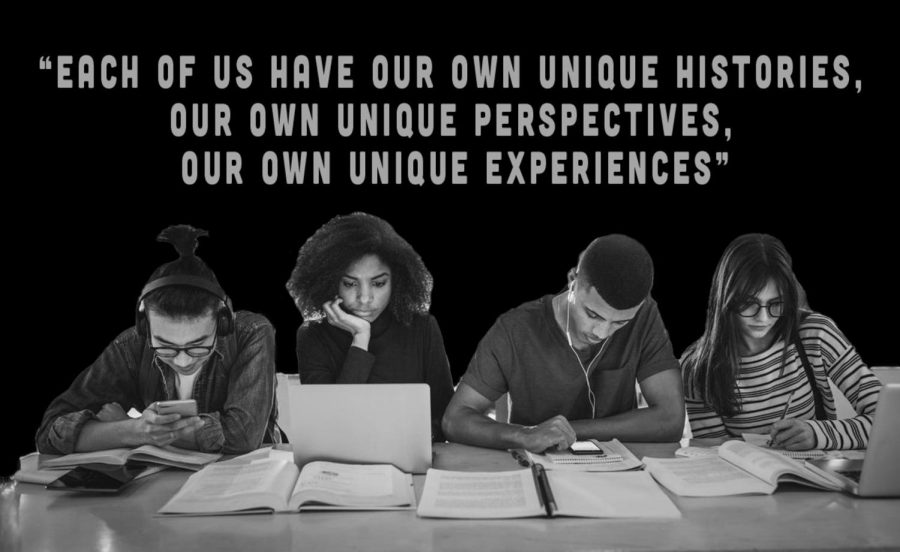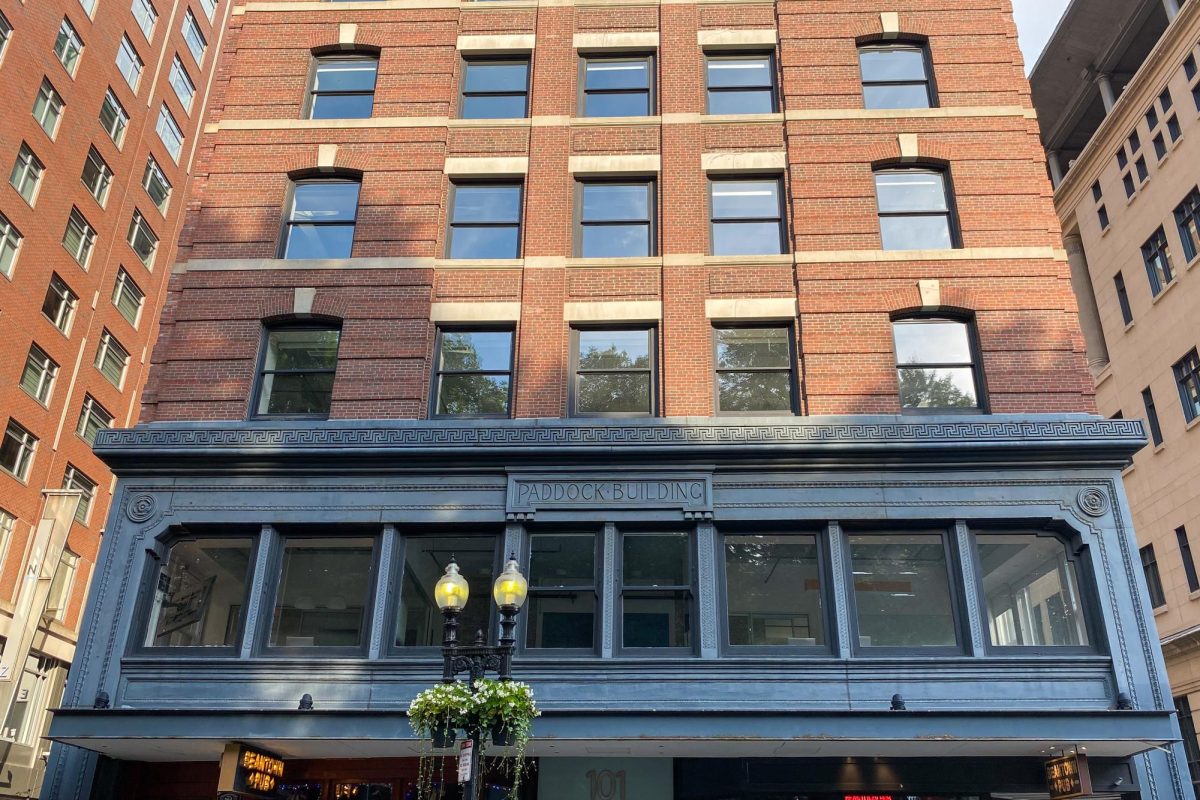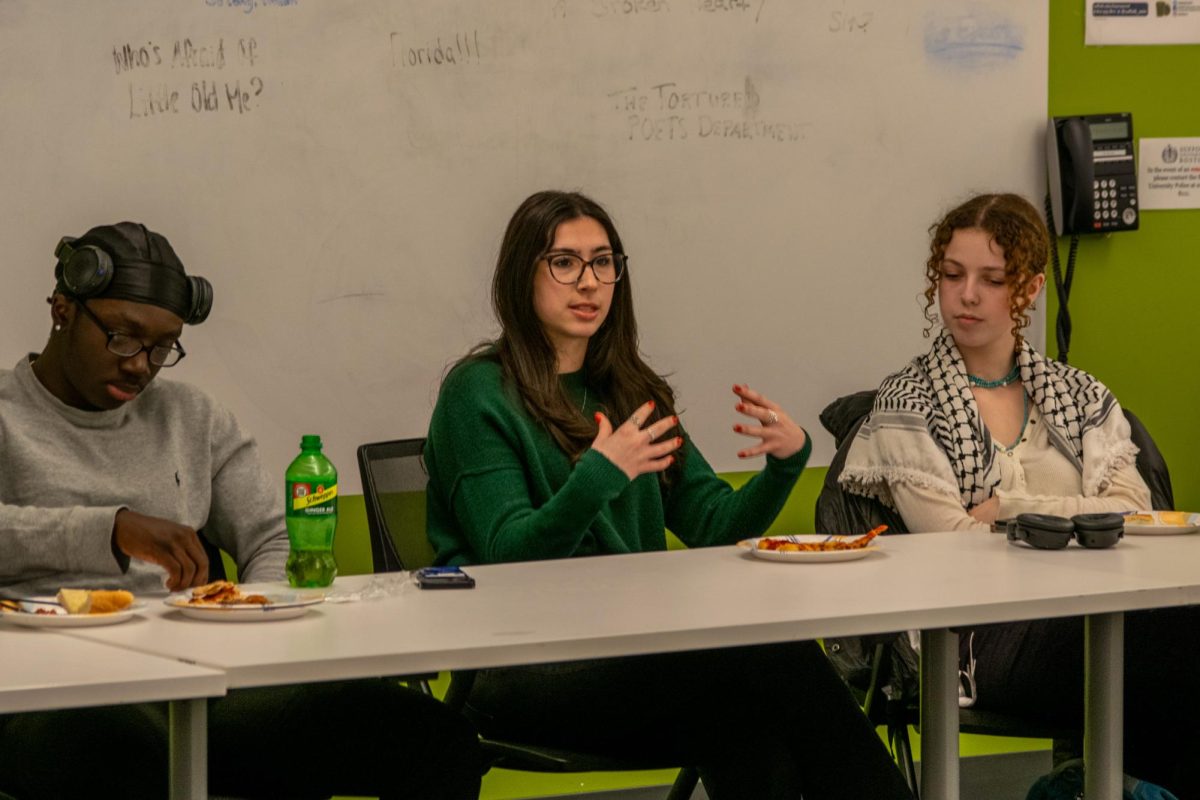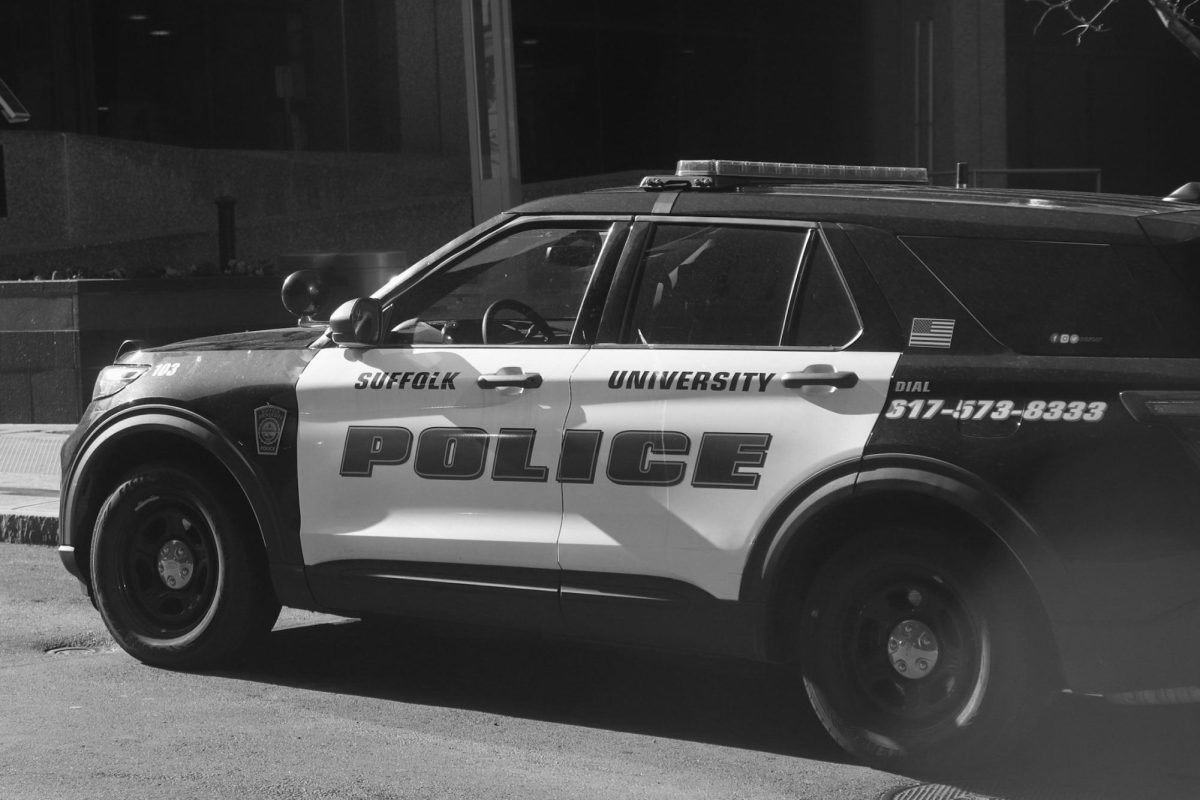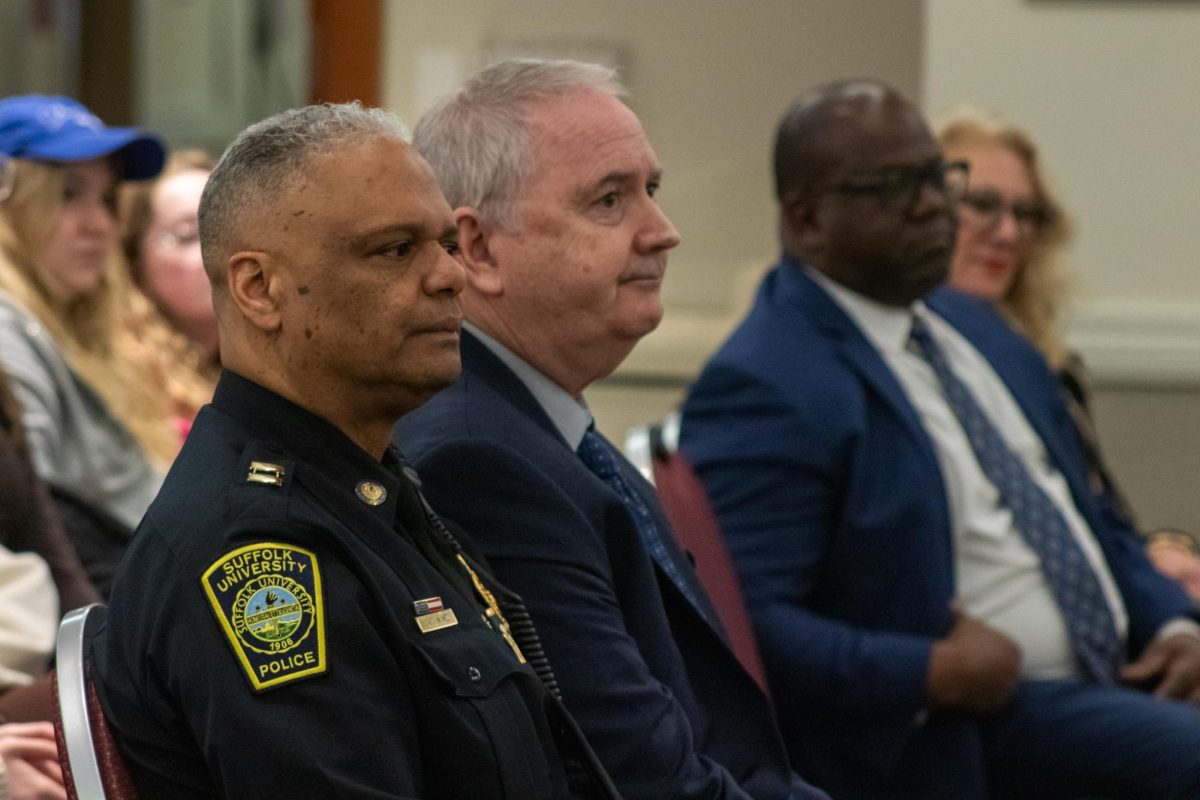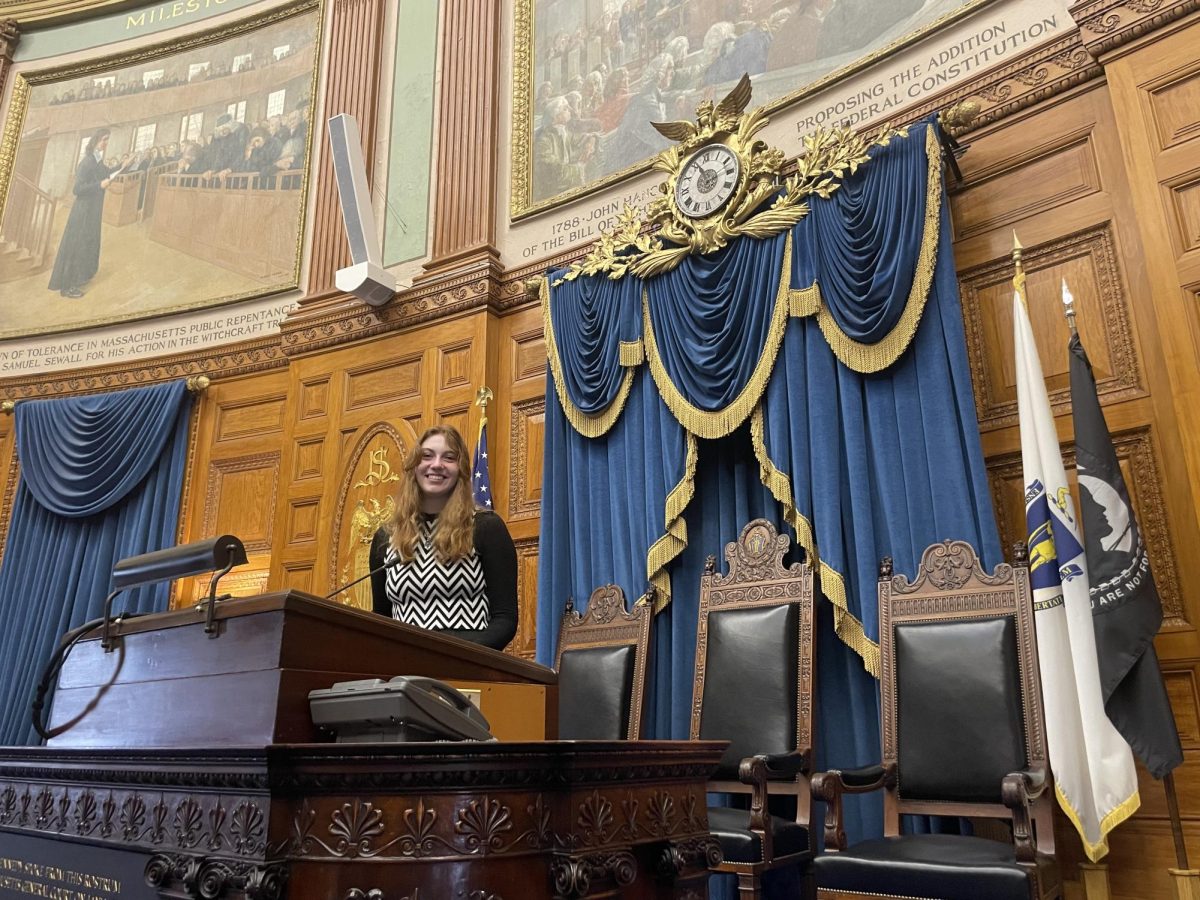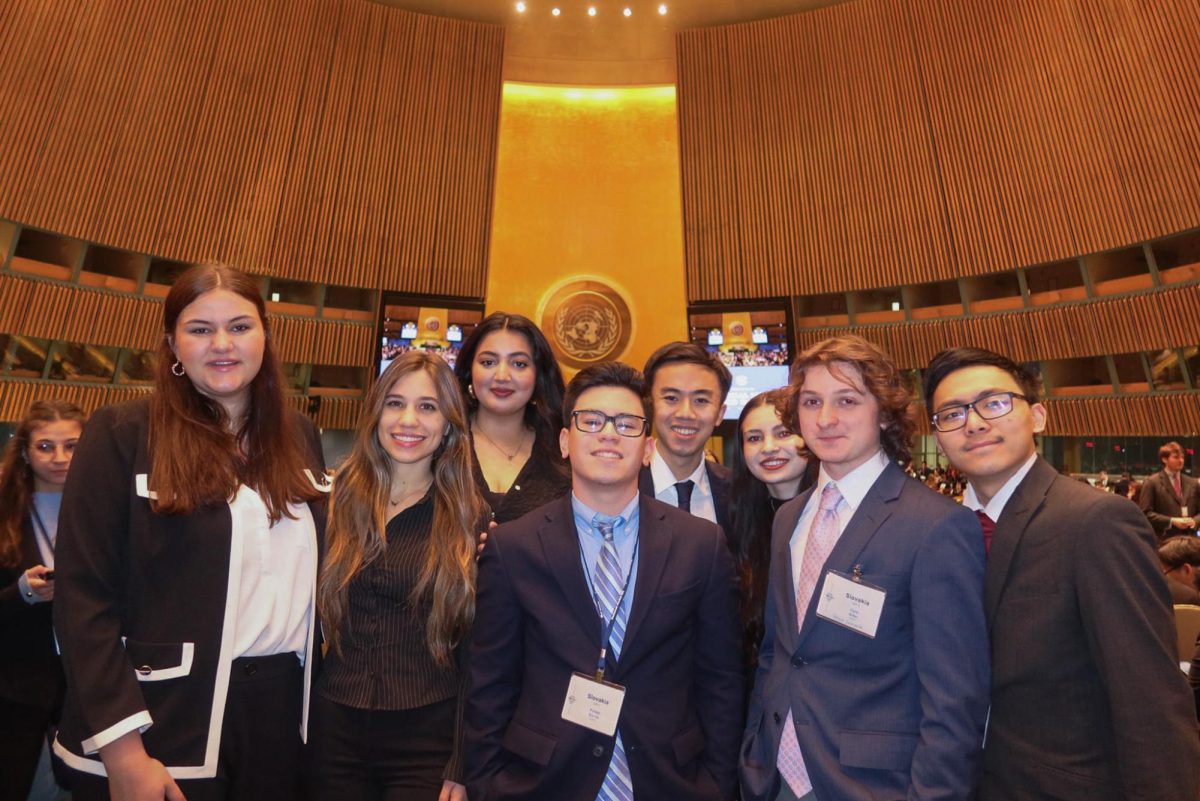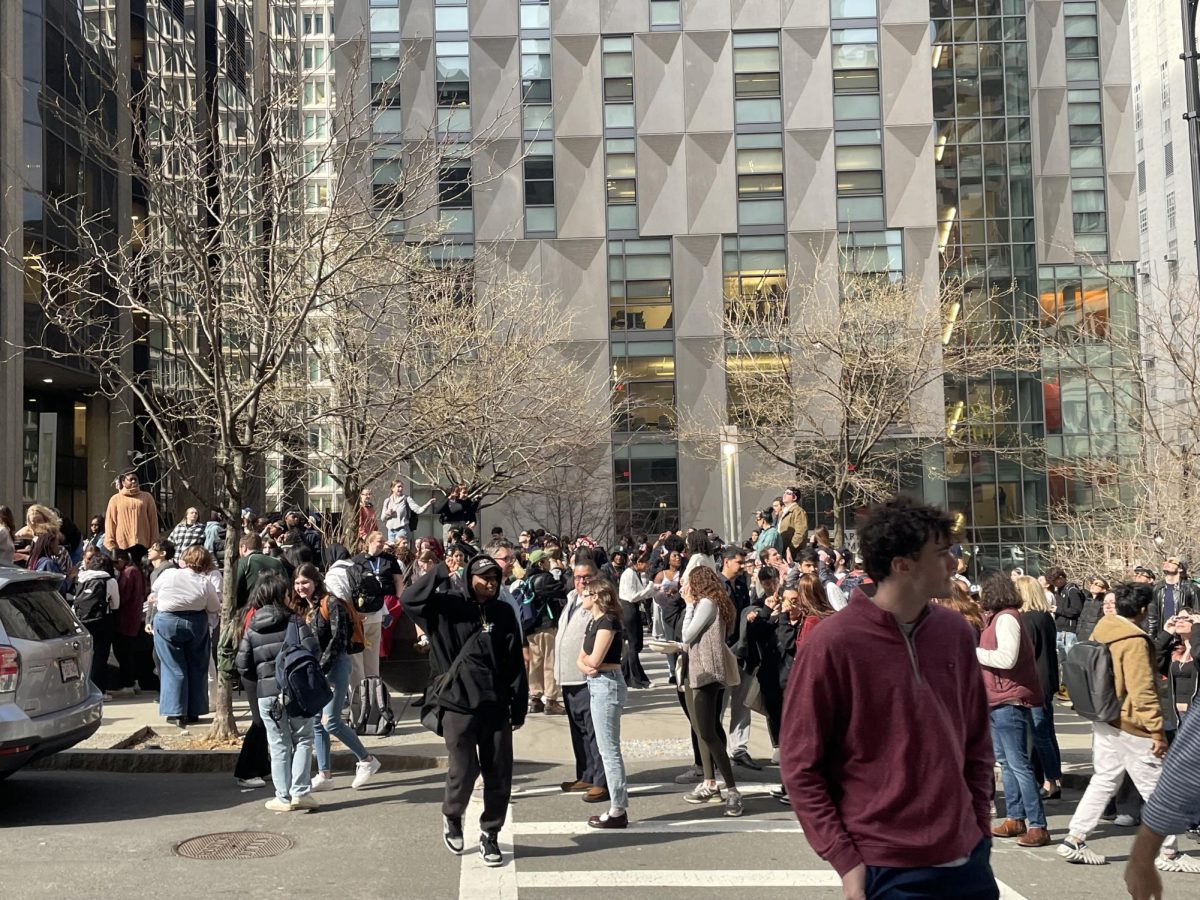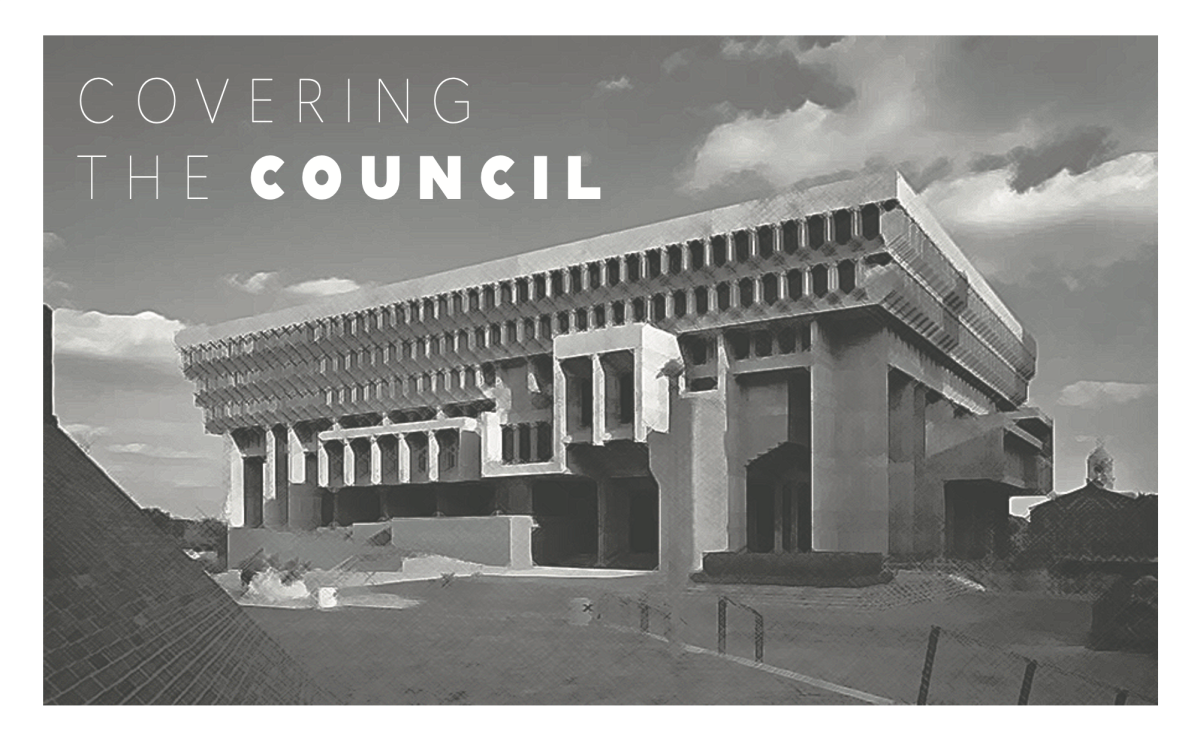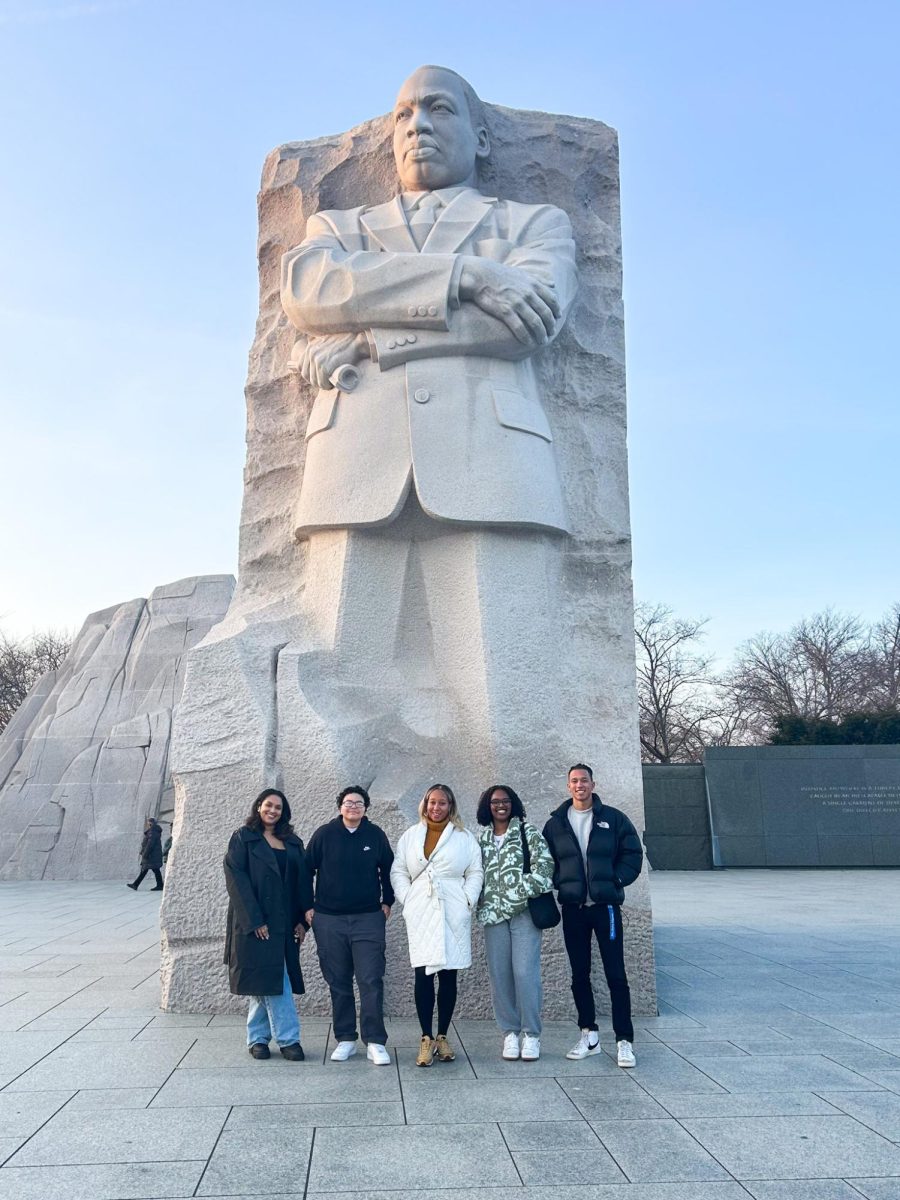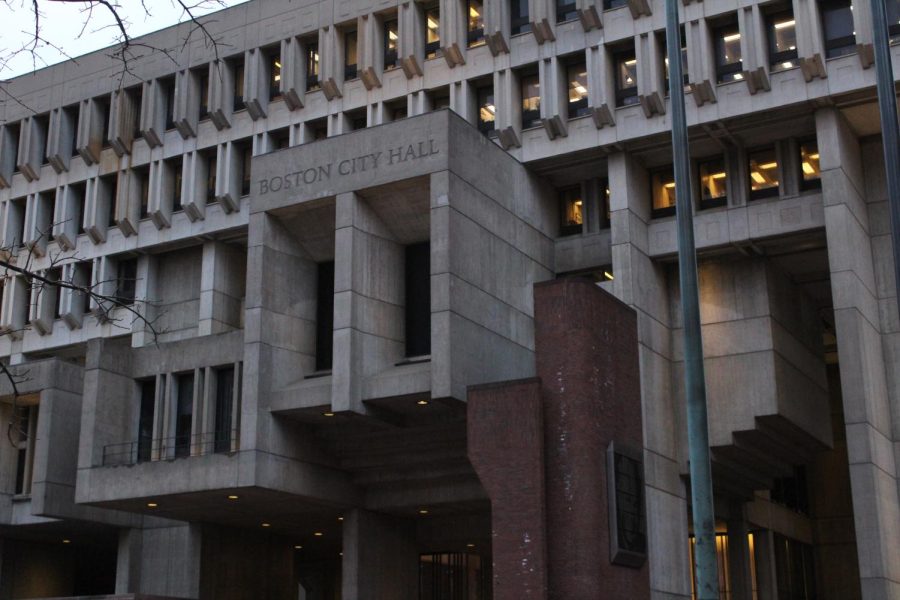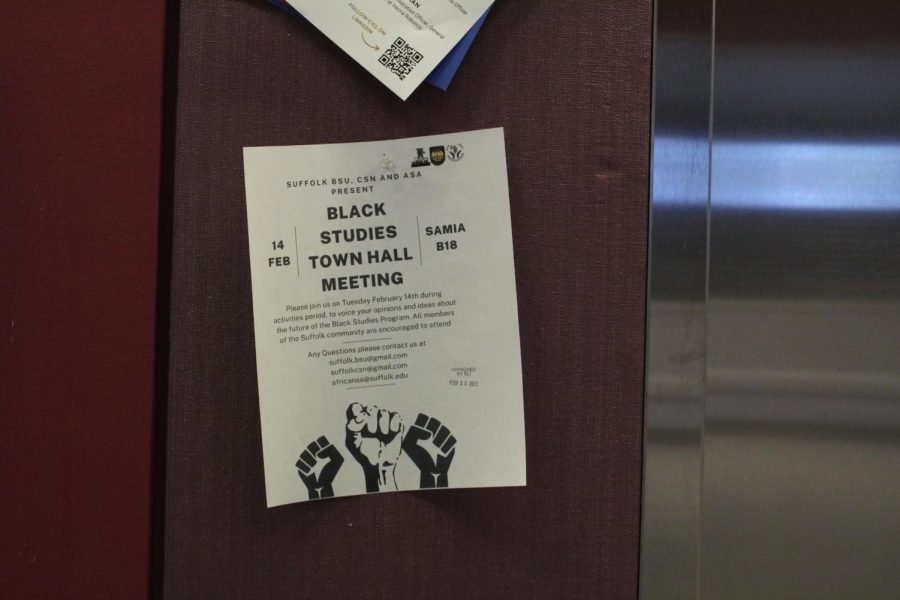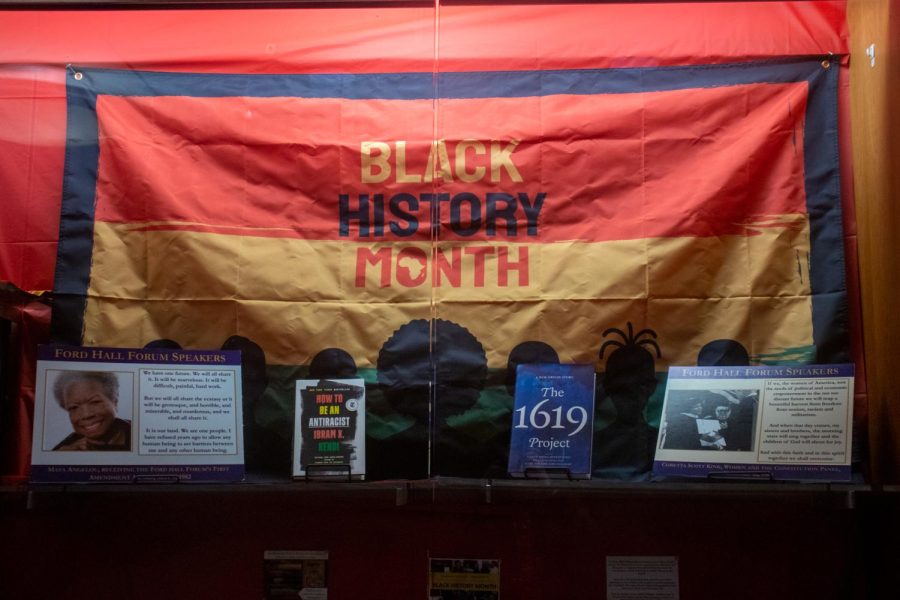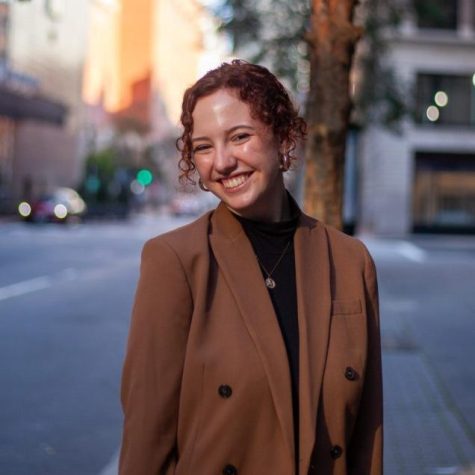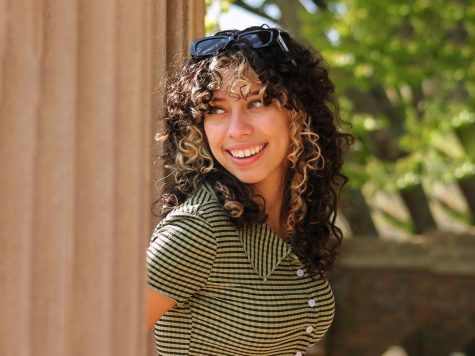Established in 1993, Suffolk University’s Black Studies program offers an interdisciplinary curriculum of Black history and culture spanning the United States, Africa and throughout the African Diaspora across the world.
To students across the program, learning about Black history and culture has had a lasting impact on their education.
“Black Studies is kind of a breath of fresh air,” said Selvin Backert, a history major. “… African American history and Black history are interwoven into all parts of history.”
Lindsay Dieudonne, a senior political science major, said she wanted to learn more about Black history, and Suffolk’s program allowed her to do so.
“Part of the reason why I even came to Suffolk was so that I could learn more [about Black history] and become a Black Studies minor,” she said. “But since I’ve taken Black Studies, it has enriched my education so, so much. I think there is a certain level of understanding, and just so many ‘aha’ moments, epiphanies and realizations that you have while studying certain things, especially when you didn’t know how much they meant to you until you learned about them.”
However, the introduction of a possible new program at Suffolk has some students worried that the Black Studies program is losing its value in Suffolk’s eyes.
College of Arts and Sciences Dean Edie Sparks, who joined the university in August, was in the process of creating an Ethnic Studies program at Suffolk when word reached members of the student body in November.
“I came up with the idea because it’s a well-established approach at a variety of institutions to advance the investigation of structural racism and inequality in multiple demographic groups and institutions,” said Sparks.
Sparks said the program is nowhere near being finalized and is pausing to collect more student input, following a Dec. 6 public forum hosted by Suffolk’s Black Student Union, African Student Association and Caribbean Student Network. At the forum, students voiced concerns regarding the possible erasure of Black Studies and asked what an Ethnic Studies program may look like within the university.
“I was very impressed with that student forum. I was so impressed by the student organizers, by the points and questions that students raised,” Sparks said. “And I always want to be responsive to student feedback and always take the opportunity to consider what I’m hearing from students.”
Sparks’ inspiration for an Ethnic Studies program came from her own experience at the University of California Berkeley, where the Ethnic Studies department was established in 1969, according to the university’s website.
Sparks said there are multiple possibilities as to how an Ethnic Studies program may look at Suffolk and that it could exist alongside the current Black Studies program.
But for many students, the possibility of a new program signified a lack of regard for the existing Black Studies program. To some, the absorption of Black Studies into a broader program would mean a decrease in diverse education and a lack of identity-specific representation.
“Each of us have our own unique histories, our own unique perspectives, our own unique experiences,” said Dieudonne. Others said robust Black Studies programs in Boston can be hard to come by.
“Not a lot of colleges and universities around Boston have Black Studies, or if they do, they are being dismissed,” said a Black Studies student who chose to remain anonymous. “Suffolk has the leverage to be a pioneer within Boston in Black Studies or African American Studies. And they’re not using that right now.”
Sparks acknowledged that more student input was needed from the beginning.
“I see that inadvertently, I gave the impression that I was going to enact change with no student voice and no student input,” she said. Sparks added that she is continuing to brainstorm ways for students to meet with her and learn more about her goals and create opportunities for her to hear student feedback for issues across the university.
And to students across the university, Black Studies is more than just a program.
“Black Studies, for me, really encapsulates not just my experience as a Black woman in America, but also the history of those that have come before me and where we can move forward,” said Dieudonne.
According to a Black Studies student, the classes not only enrich a student’s education but also give them a space separate from feeling being tokenized or isolated in the classroom.
“At a [predominantly white institution], it can be very overwhelming with being a minority. And just consistently being in the spaces where if there’s something Black being asked about within class, it’s kind of like, I feel like everyone’s looking at me to basically talk about the Black experience,” she said. “But when you have multiple people who come together, who not only enjoy that experience but are interested in that experience … that looking towards me doesn’t necessarily happen.”
Black Studies also extends beyond Black history — it’s a program for everyone, no matter their background, Backert said.
“I think students realize that Black Studies isn’t just for Black students. That’s really important. History is history,” he said.
However, students said at the December forum that what Black Studies needs more than anything else is support from the university.
Last year, a full-time faculty member in the program retired, according to spokesperson Greg Gatlin, and Suffolk is continuing to search for a way to ensure plentiful class offerings for students.
To Backert, Black Studies can thrive if the necessary steps are taken.
“I think we’ve proven that when they have the classes, the classes can fill up as long as you don’t put them at like, six, seven o’clock at night,” he said.
Dieudonne added that filling the open position left by Professor Robert Bellinger, who founded the program, is vital to fulfilling the needs of Black Studies students.
“After Professor Bellinger left it we were kind of left in a limbo. A lot of us didn’t even know if we would graduate with our minors, some of us can’t graduate with our minors because of classes that were left unavailable,” said Dieudonne. “There’s a huge void that needs to be filled. […] I think what’s really missing is focusing on the discipline itself.”
Gatlin said the university and Sparks are dedicated to supporting Black Studies, alongside the possibility of Ethnic Studies.
“Dean Sparks expects to have a plan to share with students this semester. The goal is to identify and announce concrete ways that we are going to support Black Studies as well as the comparative study of inequalities and structural racism. This will include plans to provide consistent course offerings and take scheduling into consideration,” said Gatlin.
Dieudonne said Ethnic Studies may fit in as an overarching department or program, but advocated for Black Studies and other studies of individual identities to maintain their own curriculum.
“If we have the Ethnic Studies department that has Black Studies, Latin Americans or Latino Studies, Asian Studies, that would be great,” she said. She added that general courses on Ethnic Studies may be a notable resource for students looking to learn more about culture as a whole.
Moving forward, Sparks said she is looking forward to hearing more student input when it comes to the needs, and future, of Black Studies on campus.
“I’m really interested in working closely with students and finding and creating opportunities for them to provide input,” she said.
Dieudonne said while students across campus are fighting to support Black Studies, its future still feels uneasy to those within the program.
“It’s really heartbreaking for me that I’m a senior, I leave this year [and] I’m not going to see the progression of Black studies as a student anymore. And I’m frightened for what the future of Black Studies is, because over the past 3 1/2, almost four years, we’ve only seen it dwindle,” Dieudonne said. “I’m afraid that we’re going to get phased out. I’m afraid that our history is going to remain forgotten in the American education system. And that Suffolk is just going to continuously perpetuate an erasure of peoples.”


